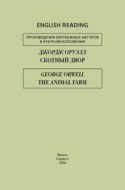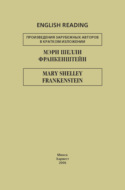Buch lesen: "The Secret Garden / Таинственный сад"
© Подготовка, оформление. ООО «Харвест», 2006
Chapter I
There Is No One Left
When Mary Lennox was sent to Misselthwaite Manor to live with her uncle everybody said she was the most disagreeable-looking 1 child ever seen. It was true, too. She had a little thin face and a little thin body, thin light hair and a sour expression. Her hair was yellow, and her face was yellow because she had been born in India and had always been ill in one way or another. Her father had held a position under the English Government and had always been busy and ill himself, and her mother had been a great beauty who cared only to go to parties and amuse herself with gay people. She had not wanted a little girl at all, and when Mary was born she handed her over to the care of an Ayah, who was made to understand that if she wished to please the Mem Sahib she must keep the child out of sight as much as possible. So when she was a sickly, fretful 2, ugly little baby she was kept out of the way 3 and when she became a sickly, fretful, toddling thing she was kept out of the way also. She never remembered seeing familiarly anything but the dark faces of her Ayah and the other native servants, and as they always obeyed her and gave her her own way in everything, because the Mem Sahib would be angry if she was disturbed by her crying, by the time she was six years old she was as tyrannical and selfish a little pig as ever lived. The young English governess who came to teach her to read and write disliked her so much that she gave up her place in three months, and when other governesses came to try to fill it they always went away in a shorter time than the first one. So if Mary had not chosen to really want to know how to read books she would never have learned her letters at all.
One frightfully hot morning she awakened feeling very cross and saw that the servant who stood by her bedside was not her Ayah. Mary wanted the strange woman to send Ayah to her.The woman only stammered that the Ayah could not come. Then Mary began to beat and kick her but she only repeated that it was not possible for the Ayah to come to her.
There was something mysterious in the air that morning. Nothing was done in its regular order and several of the native servants seemed missing, while those whom Mary saw slink 4or hurried about with ashy and scared faces. But no one would tell her anything and her Ayah did not come. She was actually left alone as the morning went on, and at last she wandered out into the garden and began to play by herself under a tree near the veranda. She pretended that she was making a flowerbed, and she stuck big scarlet hibiscus blossoms into little heaps of earth 5, all the time growing more and more angry and muttering to herself the things she would say and the names she would call Saidie when she returned.
Suddenly Mary heard her mother talking together with a fair young man. He was a very young officer who had just come from England. The child stared at him, but she stared most at her mother. She was such a tall, slim, pretty person and wore such lovely clothes. Her hair was like curly silk and she had a delicate little nose and large laughing eyes. All her clothes were thin and floating, and Mary said they were “full of lace.” The officer said to Mrs. Lennox that she must have gone to the hills two weeks ago. The Mem Sahib began to cry and blame herself.
At that very moment such a loud sound of wailing 6 broke out from the servants' quarters that she clutched 7 the young man's arm, and Mary stood shivering from head to foot. The wailing grew wilder and wilder. “What is it? What is it?” Mrs. Lennox gasped.
“Some one has died,” answered the boy officer. “You did not say it had broken out among your servants.”
“I did not know!” the Mem Sahib cried. “Come with me! Come with me!” and she turned and ran into the house.
After that, appalling things happened, and the mysteriousness of the morning was explained to Mary. The cholera had broken out in its most fatal form and people were dying like flies. The Ayah had been taken ill in the night, and it was because she had just died that the servants had wailed in the huts 8. Before the next day three other servants were dead and others had run away in terror. There was panic on every side, and dying people in all the bungalows.
During the confusion of the second day Mary hid herself in the nursery and was forgotten by everyone. Mary alternately cried and slept through the hours. She only knew that people were ill and that she heard and frightening sounds. Once she crept into the dining-room and drank a glass of wine. Very soon it made her intensely drowsy. She lay down on her bed and fell asleep.
Many things happened during the hours in which she slept so heavily, but she was not disturbed by the wails and the sound of things being carried in and out of the bungalow.
When she awakened she lay and stared at the wall. The house was perfectly still. She had never known it to be so silent before. She heard neither voices nor footsteps, and wondered if everybody had got well of the cholera and all the trouble was over. She wondered also who would take care of her now her Ayah was dead. There would be a new Ayah, and perhaps she would know some new stories. Mary had been rather tired of the old ones. She did not cry because her nurse had died. She was not an affectionate 9 child and had never cared much for any one. The noise and hurrying about and wailing over the cholera had frightened her, and she had been angry because no one seemed to remember that she was alive. Everyone was too panic-stricken 10 to think of a little girl no one was fond of. When people had the cholera it seemed that they remembered nothing but themselves. But if everyone had got well again, surely some one would remember and come to look for her.
But no one came. She lay waiting the house to grow more and more silent.
Almost the next minute she heard footsteps in the compound 11, and then on the veranda. They were men's footsteps, and the men entered the bungalow and talked in low voices. No one went to meet or speak to them and they seemed to open doors and look into rooms. “What desolation 12, she heard one voice say. “That pretty, pretty woman! I suppose the child, too. I heard there was a child, though no one ever saw her.”
Mary was standing in the middle of the nursery when they opened the door a few minutes later. She looked an ugly, cross 13 little thing and was frowning because she was beginning to be hungry and feel disgracefully neglected. The first man who came in was a large officer she had once seen talking to her father. He looked tired and troubled, but when he saw her he was so startled that he almost jumped back.
“Barney!” he cried out. “There is a child here! A child alone! In a place like this! Mercy on us, who is she!”
“I am Mary Lennox,” the little girl said, drawing herself up stiffly. She thought the man was very rude to call her father's bungalow “A place like this!”
“I fell asleep when everyone had the cholera and I have only just wakened up. Why does nobody come?”
The young man whose name was Barney looked at her very sadly. None of the servants who had not died even remembering that there was a Missie Sahib. There was no one in the bungalow but herself and the little rustling snake.
Chapter II
Mistress Mary Quite Contrary
Mary had liked to look at her mother from a distance and she had thought her very pretty, but as she knew very little of her she could scarcely have been expected to love her or to miss her very much when she was gone. She did not miss her at all, in fact, and as she was a self-absorbed 14 child she gave her entire thought to herself, as she had always done. If she had been older she would no doubt have been very anxious at being left alone in the world, but she was very young, and as she had always been taken care of, she supposed she always would be. What she thought was that she would like to know if she was going to nice people, who would be polite to her and give her her own way as her Ayah and the other native servants had done.
She knew that she was not going to stay at the English clergyman's house where she was taken at first. She did not want to stay. The English clergyman 15 was poor and he had five children nearly all the same age and they wore shabby clothes and were always quarreling and snatching toys from each other. Mary hated their untidy bungalow and was so disagreeable to them that after the first day or two nobody would play with her. By the second day they had given her a nickname which made her furious.
It was Basil who thought of it first and Mary hated him. One day he came up to her while she was playing and began to tease. He made faces, sang and laughed. He called her “Mistress Mary Quite Contrary”.
“You are going to be sent home,” Basil said to her, “at the end of the week. And we're glad of it.”
“I am glad of it, too,” answered Mary. “Where is home?”
“She doesn't know where home is!” said Basil, with sevenyear-old scorn 16. “It's England, of course. Our grandmama lives there and our sister Mabel was sent to her last year. You are not going to your grandmama. You have none. You are going to your uncle. His name is Mr. Archibald Craven.”
“I don't know anything about him,” snapped Mary.
“I know you don't,” Basil answered. “You don't know anything. Girls never do. I heard father and mother talking about him. He lives in a great, big, desolate old house in the country and no one goes near him. He's so cross he won't let them, and they wouldn't come if he would let them. He's a hunchback17, and he's horrid18.”
“I don't believe you,” said Mary; and she turned her back and stuck her fingers in her ears, because she would not listen any more.
Mrs. Crawford began to pity Mary, afterward. She remembered her beautiful mother and she could not understand why Mary did not have pretty manners like her mother had. Mrs. Crawford believed that when Ayah was dead there was no one to take care of the little girl.
Mary made the long voyage to England under the care of an officer's wife, who was taking her children to leave them in a boarding-school. She was very much absorbed in her own little boy and girl, and was rather glad to hand the child over to the woman Mr. Archibald Craven sent to meet her, in London. The woman was his housekeeper at Misselthwaite Manor, and her name was Mrs. Medlock. She was a stout19woman, with very red cheeks and sharp black eyes. She wore a very purple dress, a black silk mantle with jet fringe20 on it and a black bonnet21 with purple velvet flowers which stuck up and trembled when she moved her head. Mary did not like her at all, but as she very seldom liked people there was nothing remarkable in that; besides which it was very evident Mrs. Medlock did not think much of her.
“My word! she's a plain little piece of goods!” she said. “And we'd heard that her mother was a beauty. She hasn't handed much of it down, has she, ma'am?”
“Perhaps she will improve as she grows older,” the officer's wife said good-naturedly. “If she were not so sallow and had a nicer expression, her features are rather good. Children alter so much.”
“She'll have to alter a good deal,” answered Mrs. Medlock. “And, there's nothing likely to improve children at Misselthwaite-if you ask me!” They thought Mary was not listening because she was standing a little apart from them at the window of the private hotel they had gone to. She was watching the passing buses and cabs and people, but she heard quite well and was made very curious about her uncle and the place he lived in. What sort of a place was it, and what would he be like? What was a hunchback? She had never seen one.
Since Mary had been living in other people's houses and had had no Ayah, she had begun to feel lonely. She wanted to belong to anyone like other children. She had had servants, and food and clothes, but no one had taken any notice of her. She often thought that other people were disagreeable, but she did not know that she was so herself.
She thought Mrs. Medlock the most disagreeable person she had ever seen, with her common, highly colored face and her common fine bonnet. When the next day they set out on their journey to Yorkshire, she walked through the station to the railway carriage with her head up and trying to keep as far away from her as she could, because she did not want to seem to belong to her. It would have made her angry to think people imagined she was her little girl.
Mrs. Medlock was the kind of woman who would “stand no nonsense from young ones.” She had a comfortable, well paid place as housekeeper at Misselthwaite Manor and did at once what Mr. Archibald Craven told her to do. She never dared even to ask a question.
“Captain Lennox and his wife died of the cholera,” Mr. Craven had said in his short, cold way. “Captain Lennox was my wife's brother and I am their daughter's guardian. The child is to be brought here. You must go to London and bring her yourself.”
So she packed her small trunk and made the journey.
Mary sat in her corner of the railway carriage and looked plain and fretful. She had nothing to read or to look at, and she had folded her thin little black-gloved hands in her lap. Her black dress made her look yellower than ever, and her limp light hair straggled from under her black crepe hat 22.
“A more marred-looking 23 young one I never saw in my life,” Mrs. Medlock thought. She had never seen a child who sat so still without doing anything; and at last she got tired of watching her and began to talk in a brisk, hard voice.
Mrs. Medlock asked Mary if she knew anything about your uncle. She said no, because her father and mother had never talked to her about anything in particular. Mrs. Medlock was surprised to hear that and she decided to tell her about the place she was going to.
“Not but that it's a grand big place in a gloomy way, and Mr. Craven's proud of it in his way-and that's gloomy enough, too. The house is six hundred years old and it's on the edge of the moor 24, and there's near a hundred rooms in it, though most of them's shut up and locked. And there's pictures and fine old furniture and things that's been there for ages, and there's a big park round it and gardens and trees with branches trailing to the ground-some of them.” She paused and took another breath. “But there's nothing else,” she ended suddenly.
Mary had begun to listen in spite of herself but she did not care. Suddenly Mrs. Medlock stopped herself as if she had just remembered something in time.
“He's got a crooked back,” she said. “That set him wrong. He was a sour young man and got no good of all his money and big place till he was married.”
Mary's eyes turned toward her in spite of her intention not to seem to care. She had never thought of the hunchback's being married and she was a trifle surprised. Mrs. Medlock saw this, and as she was a talkative woman she continued with more interest. This was one way of passing some of the time, at any rate.
“She was a sweet, pretty thing and he'd have walked the world over to get her a blade o' grass she wanted. Nobody thought she'd marry him, but she did, and people said she married him for his money. But she didn't-she didn't,” positively. “When she died-”
Mary gave a little involuntary jump.
“Oh! did she die!” she exclaimed, quite without meaning to. She had just remembered a French fairy story she had once read called “Riquet a la Houppe.” It had been about a poor hunchback and a beautiful princess and it had made her suddenly sorry for Mr. Archibald Craven.
“Yes, she died,” Mrs. Medlock answered. “And it made him queerer 25 than ever. He cares about nobody. He won't see people. Most of the time he goes away, and when he is at Misselthwaite he shuts himself up in the West Wing and won't let any one but Pitcher see him. Pitcher's an old fellow, but he took care of him when he was a child and he knows his ways.”
It sounded like something in a book and it did not make Mary feel cheerful. A house with a hundred rooms, nearly all shut up and with their doors locked-a house on the edge of a moor- whatsoever a moor was-sounded dreary. A man with a crooked back who shut himself up also! If the pretty wife had been alive she might have made things cheerful by being something like her own mother. But she was not there any more.
“You needn't expect to see him, because ten to one you won't,” said Mrs. Medlock. “And you mustn't expect that there will be people to talk to you. You'll have to play about and look after yourself. You'll be told what rooms you can go into and what rooms you're to keep out of. There's gardens enough. But when you're in the house don't go wandering 26and poking about 27. Mr. Craven won't have it.”
“I shall not want to go poking about,” said sour little Mary and just as suddenly as she had begun to be rather sorry for Mr. Archibald Craven she began to cease 28 to be sorry and to think he was unpleasant enough to deserve all that had happened to him.
Mary turned her face toward the streaming panes of the window of the railway carriage and gazed out at the gray rain-storm. Sooner she fell asleep.
Chapter III
Across The Moor
She slept a long time, and when she awakened Mrs. Medlock had bought a lunchbasket at one of the stations and they had some chicken and cold beef and bread and butter and some hot tea. The rain seemed to be streaming down more heavily than ever and everybody in the station wore wet and glistening 29 waterproofs. The guard lighted the lamps in the carriage, and Mrs. Medlock cheered up very much over her tea and chicken and beef. She ate a great deal and afterward fell asleep herself, and Mary sat and stared at her and watched her fine bonnet slip on one side until she herself fell asleep once more in the corner of the carriage, lulled 30 by the splashing of the rain against the windows. It was quite dark when she awakened again. The train had stopped at a station and Mrs. Medlock was shaking her.
“You have had a sleep!” she said. “It's time to open your eyes! We're at Thwaite Station and we've got a long drive before us.”
Mary stood up and Mrs. Medlock collected her parcels. The station was a small one. A smart carriage stood on the road before the outside platform. A smart footman helped them in and they drove off. Mary sat and looked out of the window thinking about the queer place Mrs. Medlock had spoken of.
“What is a moor?” she said suddenly to Mrs. Medlock.
“Look out of the window in about ten minutes and you'll see,” the woman answered. “We've got to drive five miles across Missel Moor before we get to the Manor. You won't see much because it's a dark night, but you can see something.” Mary asked no more questions but waited in the darkness of her corner, keeping her eyes on the window. The carriage lamps cast rays of light a little distance ahead of them and she caught glimpses of the things they passed. After they had left the station they had driven through a tiny village and she had seen whitewashed cottages and the lights of a public house. Then they had passed a church and a vicarage 31 and a little shop-window or so in a cottage with toys and sweets and odd things set our for sale. Then they were on the highroad and she saw hedges 32 and trees. After that there seemed nothing different for a long time-or at least it seemed a long time to her.
At last the horses began to go more slowly, as if they were climbing up the hill, and presently there seemed to be no more hedges and no more trees. She could see nothing. A wind was rising and making a singular, wild, low, rushing sound. It was just miles and miles and miles of wild land that nothing grows on and nothing lives on but wild ponies and sheep.On and on they drove through the darkness. The road went up and down, and several times the carriage passed over a little bridge beneath which water rushed very fast with a great deal of noise. Mary felt as if the drive would never come to an end and that the wide moor was a wide expanse of black ocean through which she was passing on a strip of dry land. At last the carriage passed through the park gates.
They drove out of the vault 33 into a clear space and stopped before an immensely long but low-built house which seemed to ramble round a stone court 34. At first Mary thought that there were no lights at all in the windows, but as she got out of the carriage she saw that one room in a corner upstairs showed a dull glow.
The entrance door was a huge one made of massive, curiously shaped panels of oak studded with big iron nails and bound with great iron bars. It opened into an enormous hall, which was so dimly lighted that the faces in the portraits on the walls and the figures in the suits of armor 35 made Mary feel that she did not want to look at them. As she stood on the stone floor she looked a very small, odd little black figure, and she felt as small and lost and odd as she looked.
A neat, thin old man stood near the manservant who opened the door for them.
And then Mary Lennox was led up a broad staircase and down a long corridor and up a short flight of steps and through another corridor and another, until a door opened in a wall and she found herself in a room with a fire in it and a supper on a table.






